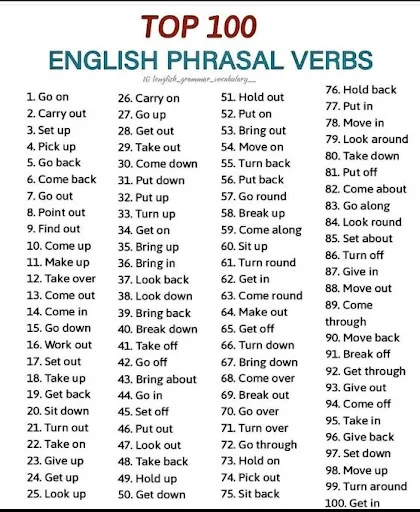#1 Verbs: The Building Blocks of Language
Verbs are the most important part of speech in any language. They are the words that express action or state of being, and they are essential for forming complete sentences. Without verbs, we could not communicate our thoughts and ideas effectively.Nouns, pronouns, verbs, adjectives, adverbs, prepositions, conjunctions, and interjections are the building blocks of communication. Identifying these parts of speech and understanding their function in a sentence is the first step toward developing confidence and fluency in developing writers, readers, and speakers.
Verbs can be divided into two main categories: action verbs and linking verbs.
Action verbs express physical or mental action. For example:
Run
Jump
Sing
Think
Learn
Linking verbs connect the subject of a sentence to a noun or adjective that describes the subject. For example:
Is
Was
Are
Were
Be
Verbs can also be classified by their tense. Tense indicates when an action takes place, whether it is in the present, past, or future. There are three main tenses in English:
The birds are singing outside.
The birds sang outside yesterday.
Future tense: Used to describe actions that will happen in the future. For example:
I will eat breakfast tomorrow.
The birds will sing outside tomorrow.
Verbs can also be conjugated to indicate different persons, numbers, and moods. For example:
I run. (first person singular, present tense)
You run. (second person singular, present tense)
She/he/it runs. (third person singular, present tense)
We run. (first person plural, present tense)
You run. (second person plural, present tense)
They run. (third person plural, present tense)
Learning to use verbs correctly is essential for speaking and writing fluent English. Here are some tips for improving your verb usage:
Make sure that the verb agrees with the subject of the sentence in person and number.
Use the correct tense to indicate when the action takes place.
Conjugate verbs correctly to indicate the person, number, and mood of the subject.
Practice using verbs in different contexts.
Verbs are the building blocks of language, and they are essential for communicating our thoughts and ideas effectively. By learning to use verbs correctly, you can improve your speaking and writing skills and become a more effective communicator
Verbs can be divided into two main categories: action verbs and linking verbs.
Action verbs express physical or mental action. For example:
Run
Jump
Sing
Think
Learn
Linking verbs connect the subject of a sentence to a noun or adjective that describes the subject. For example:
Is
Was
Are
Were
Be
Verbs can also be classified by their tense. Tense indicates when an action takes place, whether it is in the present, past, or future. There are three main tenses in English:
Present tense: Used to describe actions that are happening now or that happen on a regular basis. For example:
I eat breakfast every morning.The birds are singing outside.
Past tense: Used to describe actions that happened in the past. For example:
I ate breakfast this morning.The birds sang outside yesterday.
Future tense: Used to describe actions that will happen in the future. For example:
I will eat breakfast tomorrow.
The birds will sing outside tomorrow.
Verbs can also be conjugated to indicate different persons, numbers, and moods. For example:
I run. (first person singular, present tense)
You run. (second person singular, present tense)
She/he/it runs. (third person singular, present tense)
We run. (first person plural, present tense)
You run. (second person plural, present tense)
They run. (third person plural, present tense)
Learning to use verbs correctly is essential for speaking and writing fluent English. Here are some tips for improving your verb usage:
Make sure that the verb agrees with the subject of the sentence in person and number.
Use the correct tense to indicate when the action takes place.
Conjugate verbs correctly to indicate the person, number, and mood of the subject.
Practice using verbs in different contexts.
Verbs are the building blocks of language, and they are essential for communicating our thoughts and ideas effectively. By learning to use verbs correctly, you can improve your speaking and writing skills and become a more effective communicator
Verbs are words that show an action (sing), occurrence (develop), or state of being (exist). Almost every sentence requires a verb. The basic form of a verb is known as its infinitive. The forms call, love, break, and go are all infinitives.
Verbs are words that describe an action or talk about something that happens. They take many different forms depending on their subjects, the time they refer to and other ideas we want to express.
A verb is a word or a combination of words that indicates action or a state of being or condition. A verb is the part of a sentence that tells us what the subject performs. Verbs are the hearts of English sentences.
TRANSITIVE VERBS
The main Verb that does not take a direct object specified right afterward and rather there is an indirect one mentioned somewhere along the line is called an Intransitive Verb. These verbs often make the corresponding sentences incomplete.
WEAK VERBS
Verbs that end with “-d” and “-t” in their Past Indefinite and Past Participle form are Weak Verbs. There is a tendency to associate Weak Verbs with Regular Verbs but not all Weak Verbs are Regular Verbs in the English language.
Finite verbs are the actual verbs that are called the roots of sentences. It is a form of a verb that is performed by or refers to a subject and uses one of the twelve forms of tense and changes according to the number/person of the subject.
Verbs are words that describe an action or talk about something that happens. They take many different forms depending on their subjects, the time they refer to and other ideas we want to express.
A verb is a word or a combination of words that indicates action or a state of being or condition. A verb is the part of a sentence that tells us what the subject performs. Verbs are the hearts of English sentences.
BASE VERB
The base verb is the form of a verb where it has no ending (-ing, -ed, -en) added to it. It is also called the Root Verb since it is the very root form of a verb.REGULAR VERBS
The Verbs that follow the most usual conjugations are considered Regular Verbs. It is regular since it abides by most if not all of the regular grammar rules there are.
IRREGULAR VERBS
The Verbs that have irregularities in terms of following grammar rules are Irregular Verbs, in general.TRANSITIVE VERBS
The main Verb that does not take a direct object specified right afterward and rather there is an indirect one mentioned somewhere along the line is called an Intransitive Verb. These verbs often make the corresponding sentences incomplete.
WEAK VERBS
Verbs that end with “-d” and “-t” in their Past Indefinite and Past Participle form are Weak Verbs. There is a tendency to associate Weak Verbs with Regular Verbs but not all Weak Verbs are Regular Verbs in the English language.
STRONG VERBS
Strong Verbs are those in which the vowels in the verb stem changes from “i” to “a” to “u” in the Present Indefinite to Past Indefinite to Past Participle form of Verbs.FINITE VERBS
Finite verbs are the actual verbs that are called the roots of sentences. It is a form of a verb that is performed by or refers to a subject and uses one of the twelve forms of tense and changes according to the number/person of the subject.




















